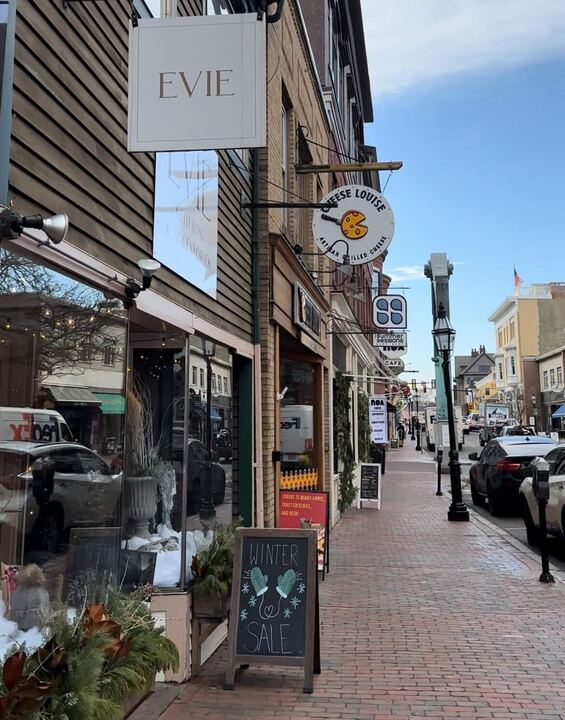The future of American politics

January 31, 2021
Despite the ongoing coronavirus (COVID-19) pandemic, political engagement in the 2020 election broke records.
From a vast Democratic primary field of over two dozen candidates, where longtime politician Joe Biden was ultimately nominated, to an incredibly unique incumbent Republican president, Donald Trump, there were many possible outcomes of the 2020 election. Of course, we now know the facts with certainty: Donald Trump lost reelection, and Joe Biden won the presidency. Democrats lost 12 seats but maintained control of the U.S. House, and with wins in both Georgia runoff races, they have just barely gained control of the U.S. Senate. The U.S. Supreme Court, as of the nomination of Justice Amy Coney Barrett, holds a 6-3 conservative majority.
What does all of this mean? And, how did we get here?
For many, 2020 was a call to action. Whether spurred by the COVID-19 pandemic, a renewed racial justice movement, or strong feelings about either Biden or Trump, young people turned out to vote.
Andy Smith, the director of the University of New Hampshire (UNH) Survey Center and a professor in the political science department, notes, “most people don’t care about politics most of the time.”
Elections are generally the time where partisanship is most prevalent, and people pay the most attention to politics.
This was the case for college-aged people in 2020, many of whom were voting for the first time in a general election. Tufts University’s Center for Information & Research on Civic Learning and Engagement (CIRCLE) projects that between 53% and 56% of voting-eligible young people voted in the 2020 election. This is a significant increase compared to the 2016 election, where they projected between 45% and 48%.
College students are “coming of age” in a new political climate due to advancements in technology. Between the 24-hour loop of cable news, the constant connection of social media, and the ease with which information is produced, altered, and spread, it’s quite easy to feel overwhelmed. Generations before did not consume news in the ways that Generation Z does, and therefore did not interact with politics in the same ways.
For example, Generation Z has experienced half of the country’s impeachments. Constantly televised and trending on Twitter – suffice to say, this was a very different experience than that of the impeachments of Richard Nixon or Andrew Johnson.
Following the second impeachment of former President Donald Trump, some were noting that it was the “most bipartisan impeachment” in U.S. history, with 10 House Republicans and all 222 House Democrats voting to impeach on Jan. 13. However, the U.S. Senate now finds themselves in a predicament. Scholars have questioned the constitutionality of conducting an impeachment trial of a president no longer in office. Smith believes it is unprecedented. “To me it’s vengeance, it’s retribution. But it’s not doing the things that Biden says he wants to do to heal the wounds in America. It’s going to sharpen those wounds, and that’s a problem Biden’s got – he’s got to walk this line between a base that is out for blood, out for Trump, and the longer term good of the country. I don’t think it’s good for the country to do stuff like this. It makes us look like a banana republic when we start prosecuting our former presidents,” he said.
In his inauguration address, President Biden emphasized the importance of unity. “To overcome these challenges — to restore the soul and to secure the future of America — requires more than words. It requires the most elusive of things in a democracy: Unity. Unity,” he said.
However, the United States is far from a country united. A November 2020 article from the Pew Research Center outlines partisanship in the U.S., providing data to suggest that “Americans have rarely been as polarized as they are today.”
So, what does the state of political polarization today mean? Where does American politics go from here?
A December 2020 Gallup poll found that 25% of Americans surveyed considered themselves Republicans, 31% considered themselves Democrats, and 41% considered themselves Independents.
For many young people, it can be hard to conceptualize exactly what the current state of politics means, how the system works, and what political history tells us about current events. Smith said the 2016, 2000, and even the disputed 1876 presidential elections had some similarities to today.
Some have speculated that there’s potential for a third major political party to form, and Smith thinks there will be a push from some for this creation. He noted that political operatives who make their living in the business of politics might try to capitalize on this debate. Since Republicans are currently the minority after losing the presidency and the Senate, one might assume they are more likely to consider this move. However, in examining recent history, third parties are generally unsuccessful and are seen by some as “spoilers” of the party they are drawing voters from.
Smith said, “the question is whether or not the Republican Party leadership, and the elected officials within the Republican Party, split off… And third parties cause the party that they split off from to lose or disappear… Republican leaders are going to look at that and say, `Well, we don’t want the party to go away, we don’t want to lose our elections, by splitting off our vote.’”
The question many are wondering – what’s next for former President Donald Trump? As he headed home to Mar-a-Lago, he told supporters “we will be back in some form.” While many have wondered if Trump will run again in 2024, Smith thinks Trump’s career in politics is largely over.
“I think he’s done largely because he wasn’t able to deliver what a political leader has to deliver – and that’s win,” he said, noting that Trump “lost the presidency, lost the Senate.”
Trump and his message appealed to many Americans – 74,223,744 general election voters, to be exact. One likely option for the Republican party is to refocus. “They want Trumpism without Trump… That would be a powerful political movement. Trump didn’t create Trumpism, or, you know, the Trumpsters. He just saw where they were going and got to the front of the line, which is what good politicians do – they sense political power and get out in front of it and try to marshal it,” Smith explained.
As young peoples’ lives start to get busy with the start of another semester, it seems likely they’ll pay less attention to politics and the goings-on in Washington, D.C. “If I were to say one thing that I would want students to take away is think long term. Remember that this has happened before. We all like to think that this time is different. Most of the time it’s not different. Most of the time it is the same as it’s been before. Because there are fundamental reasons that things go this way. But my biggest concern is that we start messing with the foundations of society, foundations of politics and political society in the United States, because of short term political issues,” Smith said.
Photo courtesy of Smithsonian Magazine




























